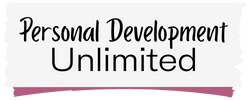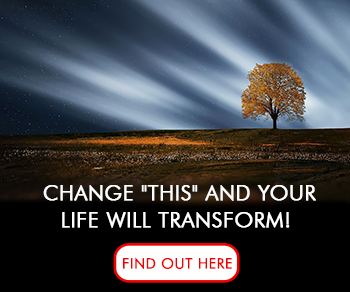What Is a Relationship?
This may seem like a silly question. However, there are numerous ways to define a relationship. So we are all on the same page, it seemed important to start off with a definition of what a relation is.
A relationship is a connection between two or more individuals that involves shared experiences, emotions, and interactions. It is a bond intimate connection that can develop between friends, family members, romantic partners, or even colleagues. Relationships are an essential part of human experience and play a significant role in our emotional and mental wellbeing.
Relationships come in all shapes and sizes, and there is no one-size-fits-all definition of what constitutes a relationship. Some types of relationships we talk about are, a romantic relationship, business relationship, or family relationships. Personal development is beneficial in both a committed relationship or a casual relationship.

The Importance of Personal Development in Relationships
Relationships are the cornerstone of a happy and fulfilling life, whether it’s with your partner, family, friends, or colleagues. But building strong connections with others requires more than just love, trust, and commitment. It also requires personal development – the process of improving yourself mentally, emotionally, and spiritually to become a better version of yourself. Personal development is not a one-time event but a lifelong journey that can enhance your relationships in many ways.
The benefits of personal development are numerous. It can help you understand yourself better, communicate more effectively, empathize with others, resolve conflicts, set healthy boundaries, and build trust and intimacy. When you work on your personal growth, you become more self-aware, confident, and resilient, which can improve your relationships in all areas of your life. So, if you want to build stronger connections with others, start by focusing on your personal development.
Understanding Yourself: The Foundation for Strong Connections
The first step in personal development is to understand yourself. When you know who you are, what you want, and what you stand for, you can make better decisions, set clearer boundaries, and communicate more effectively. But how do you get to know yourself? One way is through mindfulness and journaling.
Mindfulness is the practice of being present in the moment without judgment. It helps you cultivate self-awareness, reduce stress, and improve your overall well-being. By paying attention to your thoughts, feelings, and sensations, you can gain insights into your inner world and identify patterns that may be holding you back in your relationships. Journaling, on the other hand, is a form of self-reflection that allows you to express your thoughts and feelings in writing. By putting your thoughts on paper, you can gain clarity, process your emotions, and identify areas for improvement.
By combining mindfulness and journaling, you can deepen your self-awareness and gain a better understanding of yourself. When you know your strengths, weaknesses, values, and beliefs, you can communicate more authentically and build stronger connections with others.

Communication Skills: Listening and Expressing Yourself Effectively
Effective communication is essential for building strong connections with others. But communication is not just about talking, it’s also about listening. When you listen actively and empathetically, you show others that you value and respect their opinions and feelings. This can help build trust, understanding, and intimacy in your relationships.
To become a better listener, practice active listening. This means giving your full attention to the other person, asking clarifying questions, and reflecting back what you heard. It also means staying present and avoiding distractions, such as your phone, TV, or other people.
Expressing yourself effectively is also important in communication. When you communicate clearly and assertively, you can express your needs, boundaries, and feelings without being aggressive or defensive. This can help prevent misunderstandings, conflicts, and resentment in your relationships.
To become a better communicator, practice assertiveness. This means expressing yourself honestly and respectfully, using “I” statements, and avoiding blame or judgment. It also means being open to feedback, listening to others’ perspectives, and finding common ground.
Empathy and Emotional Intelligence: Nurturing Compassion and Understanding
Empathy and emotional intelligence are two essential skills for building strong connections with others. Empathy is the ability to understand and share others’ emotions, while emotional intelligence is the ability to recognize and manage your own emotions and those of others. Together, they can help you cultivate compassion, understanding, and connection in your relationships.
To nurture empathy and emotional intelligence, practice active listening and perspective-taking. This means putting yourself in the other person’s shoes, imagining how they feel, and responding with empathy and understanding. It also means recognizing and managing your own emotions, such as anger, fear, or sadness, and expressing them in a healthy way.
Developing empathy and emotional intelligence requires practice and patience. But the more you cultivate these skills, the more you can deepen your emotional connection with others and build stronger relationships.

Conflict resolution: Managing Disagreements and Finding Common Ground
Conflict is a natural part of any relationship. But how you manage conflict can make or break your connections with others. To build stronger relationships, it’s important to learn how to resolve conflicts in a healthy and productive way.
To manage conflicts effectively, practice active listening, empathy, assertiveness and being a good listener. This means understanding the other person’s perspective, expressing your own needs and feelings, and finding common ground. It also means avoiding blame, criticism, and defensiveness, and focusing on finding solutions that work for both parties.
When conflicts arise, take a step back, breathe, and try to see the situation from a different perspective. Ask questions, listen to the other person’s point of view, and express your own needs and feelings respectfully. Remember that conflicts can be opportunities for growth and understanding, and that finding common ground can lead to stronger connections and deeper intimacy.
Prioritizing Self-care and Boundaries in Relationships
Building strong connections with others requires a balance between giving and receiving. But it’s also important to prioritize your own needs and boundaries in your relationships. When you take care of yourself, you can show up as your best self and give more to others.
To prioritize self-care and boundaries, set clear boundaries and communicate them assertively. This means saying no when you need to, prioritizing your own needs and values, and taking time for yourself to recharge and rejuvenate. It also means recognizing when relationships are unhealthy or toxic and taking steps to protect yourself.
When you prioritize self-care and boundaries, you send a message to others that you value and respect yourself. This can help build trust, respect, and intimacy in your relationships, and prevent burnout and resentment.
Strengthening Relationships Through Personal Growth
Personal growth is not just about improving yourself, it’s also about improving your relationships. When you work on your personal development, you can become more compassionate, empathetic, and understanding, which can deepen your connections with others.
To strengthen your relationships through personal growth, focus on building your emotional intelligence, self-awareness, and communication skills. This means practicing mindfulness, journaling, active listening, empathy, and assertiveness. It also means seeking feedback, learning from your mistakes, and being open to new perspectives.
When you prioritize personal growth in your relationships, you become a better partner, friend, and colleague. You can build stronger connections with others, deepen your intimacy, and create a more fulfilling and meaningful life.

Overcoming Obstacles Through Personal Growth
Personal growth is not always easy. It can be challenging to confront your fears, insecurities, and limitations. But overcoming these obstacles is essential for building stronger connections with others.
To overcome obstacles through personal growth, practice self-compassion and self-forgiveness. This means treating yourself with kindness, understanding, and forgiveness, and recognizing that growth is a journey, not a destination. It also means seeking support from others, such as friends, family, or a therapist.
When you overcome obstacles through personal growth, you become more resilient, adaptable, and confident. You can face challenges with more grace and ease, and build stronger connections with others who share your values and goals.
Seeking Professional Help: When Personal Development is Not Enough
Personal development is a powerful tool for building strong connections with others. But sometimes, personal development is not enough. When you face complex or challenging issues in your relationships, seeking professional help can be beneficial.
Professional help can provide you with the tools, resources, and support you need to overcome obstacles and build stronger connections with others. This can include therapy, coaching, or counseling. These professionals can help you identify patterns, gain insights, and develop strategies for growth and change.
Seeking professional help is not a sign of weakness but a sign of strength. It shows that you are committed to your personal growth and building stronger connections with others.

The benefits of personal development in relationships
The benefits of personal development in relationships are numerous. When you work on your personal growth, you can become more self-aware, confident, and resilient, which can improve your relationships in all areas of your life. You can also become more compassionate, empathetic, and understanding, which can deepen your connections with others. Personal development can also help you manage conflicts, set healthy boundaries, and build trust and intimacy in your relationships.
Other areas of personal development that are beneficial to grow your relationship:
Emotional Well-being – the ability to recognize yours and others emotions.
Intellectual/Mental health – your mental commitment and strength.
(Here at Personal Development Unlimited we categorize Emotional and Intellectual together in a general personal growth category for ease of use as they often overlap and merge.)
Physical Health – make sure you are getting enough sleep, eating healthy, being active and getting any medical care you need.
Financial Management – learn the best strategy to manage your money and use it in the best ways for you to achieve your goals and live the life you want.
Social/Relationship Growth – have the best relationships you can with romantic and sexual partners, family and friends.
Career Development – design the career of your dreams from climbing the ladder to owning your own business.
Spiritual Growth – your existential connection to the world around you and the human spirit.
Conclusion: The ongoing journey of personal development in relationships
Personal development is an ongoing journey that requires commitment, patience, and self-reflection. But the benefits of personal development in relationships are worth the effort. When you focus on your personal growth, you can become a better partner, friend, and colleague. You can build stronger connections with others, deepen your intimacy, and create a more fulfilling and meaningful life. So, start your journey of personal development today and see how it can transform your relationships for the better.
Personal Development Unlimited is your go-to place to be You, Without Limits. We bring together personal development and self-improvement articles, books, courses and videos in one place. Find your self-growth opportunities easily.
Comments
0 comments



